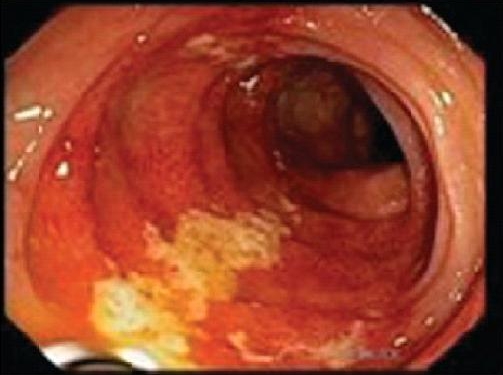Ischemic Colitis Symptoms, Causes, Diagnosis and Treatment

What Is Ischemic Colitis?
It occurs when the flow of blood to a part of your colon is reduced. This disruption of smooth blood flow tends to ensue because of blocked or narrowed arteries. Such causes inadequate oxygen to the cells present in the digestive system, leading pain and damage to the large intestine. Any portion of your large intestine can be affected by ischemic colitis. It is commonly observed in older adults.
Ischemic colitis may cure on its own, though medication is needed for preventing or treating infection. Moreover, in case the condition has managed to lead any damage to your colon, doctor can suggest surgery.
What Are The Symptoms Of Ischemic Colitis?
Common signs of ischemic colitis are:
- Diarrhea.
- Gradual or sudden cramping, tenderness or pain in the belly.
- Urgent need to have bowel movements.
- Blood in stool, sometimes discharge of blood without stool.
Chances to experience complications are increased when symptoms such as cramping, tenderness or pain is felt in your abdomen’s right side. Reason lies in the fact that the arteries responsible for feeding the side also feed a part of the small intestine. Interrupted flow of blood on the right side of the large intestine causes the interruption of blood flow to the part of the small intestine too. Consequently, pain is far intense with this particular form of ischemic colitis. Often, such a condition leads to a serious situation, necrosis- death of the intestinal tissue. For which, an individual is recommended the option of surgery in order to remove the damaged part of the intestine and clear out the blockage.
What Causes Ischemic Colitis?
Ischemic colitis occurs when the colon receives inadequate supply of blood due to disturbed blood flow, which can be sourced by hardening of a particular or more mesenteric artery (arteries responsible for serving your intestines). Such hardening is a common trigger of ischemic colitis in individuals with a history of peripheral vascular disease or coronary artery disease, wherein other arteries of the body gets harden.
In addition to this, a blood clot can serve as the basis to block your mesenteric arteries, resulting in reduced or stopped blood flow. An individual is likely to develop ischemic colitis in case he or she has:
- Diabetes.
- Congestive heart failure.
- Damage to the aortic artery.
- Low blood pressure.
- Been taking medications that cause constipation.
How Is Ischemic Colitis Diagnosed?
During your visit, the doctor will ask regarding the symptoms you have been noticing in the past few days. Moreover, in order to confirm its diagnosis, the doctor can suggest the following imaging tests:
- MR or CT angiography.
- Stool analysis.
- Abdominal CT scans.
- Ultrasound.
How Is Ischemic Colitis Treated?
Its treatment depends upon the severity of case. In mild cases, usually the symptoms tend to diminish within three to four days. However, the doctor can prescribe a course of antibiotics in order to prevent infections. Surgery is recommended in case of severe cases of ischemic colitis, wherein it has managed to damage the colon.
By : Natural Health News




